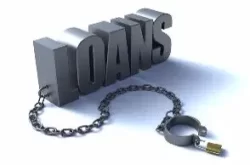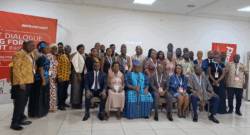This year, around 40 state-owned enterprises have submitted themselves to performance contracts, and this is a marked improvement from the 25 that submitted themselves last year, states Executive Chairman of the State Enterprises Commission, Stephen Asamoah-Boateng.
Mr. Asamoah-Boateng observed that the key performance indicators in the performance contract are to ensure that these entities remain credit-worthy, since we are told around 50 percent of national assets are held or controlled by SOEs.
Globally, successful nations have leveraged their State-Owned Enterprises (SOEs) to improve the economic well-being of its citizens. China for example has seen a tremendous growth in its SOEs, particularly since its economic-boom era. India and Brazil are also examples of nations whose failing SOEs have turned around and now contribute to the well-being of their citizens as well as the nation’s overall economic success.
In a speech read on behalf of the President, Senior Minister Yaw Osafo-Maafo observed that the cardinal role of the SOE sector is not only determined by its contribution to GDP, but more importantly in playing a leading role in the country’s economic growth and invariably propelling the nation beyond aid.
As emphasised by Mr. Asamoah-Boateng, the performance contract is a partnership with government that will ensure improvement in public sector service delivery to Ghanaians as a whole, and we believe the initiative needs to be sustained so that the confidence reposed in these entities will be justified.
Surprisingly, even Gulf monarchies have successfully leveraged their SOEs – which are well-managed and highly profitable. Therefore, we see no reason why in a liberal democracy like ours we cannot find reason to operate high-performing SOEs.
SOEs fail to deliver because their boards are run by politically appointed incompetent individuals. Their political masters cloud their ability to be independent in judgement. These board members continually direct the SOEs in directions that will benefit them personally or their political masters.
There is a shift in the position taken by many capitalist economists, a shift away from liberal orthodoxy as seen in the eighties. They now acknowledge that, indeed, SOEs have a role to play in nation-building, especially in emerging economies.
Hence, allowing SOEs to stagnate into bankruptcy is politically suicidal and does not help the cause of nation-building. We are therefore pleased that some normalcy is being restored, and heads of various agencies, chairpersons of SOE boards are committing to performance contracts. We believe this will greatly enhance and improve upon their performance.










